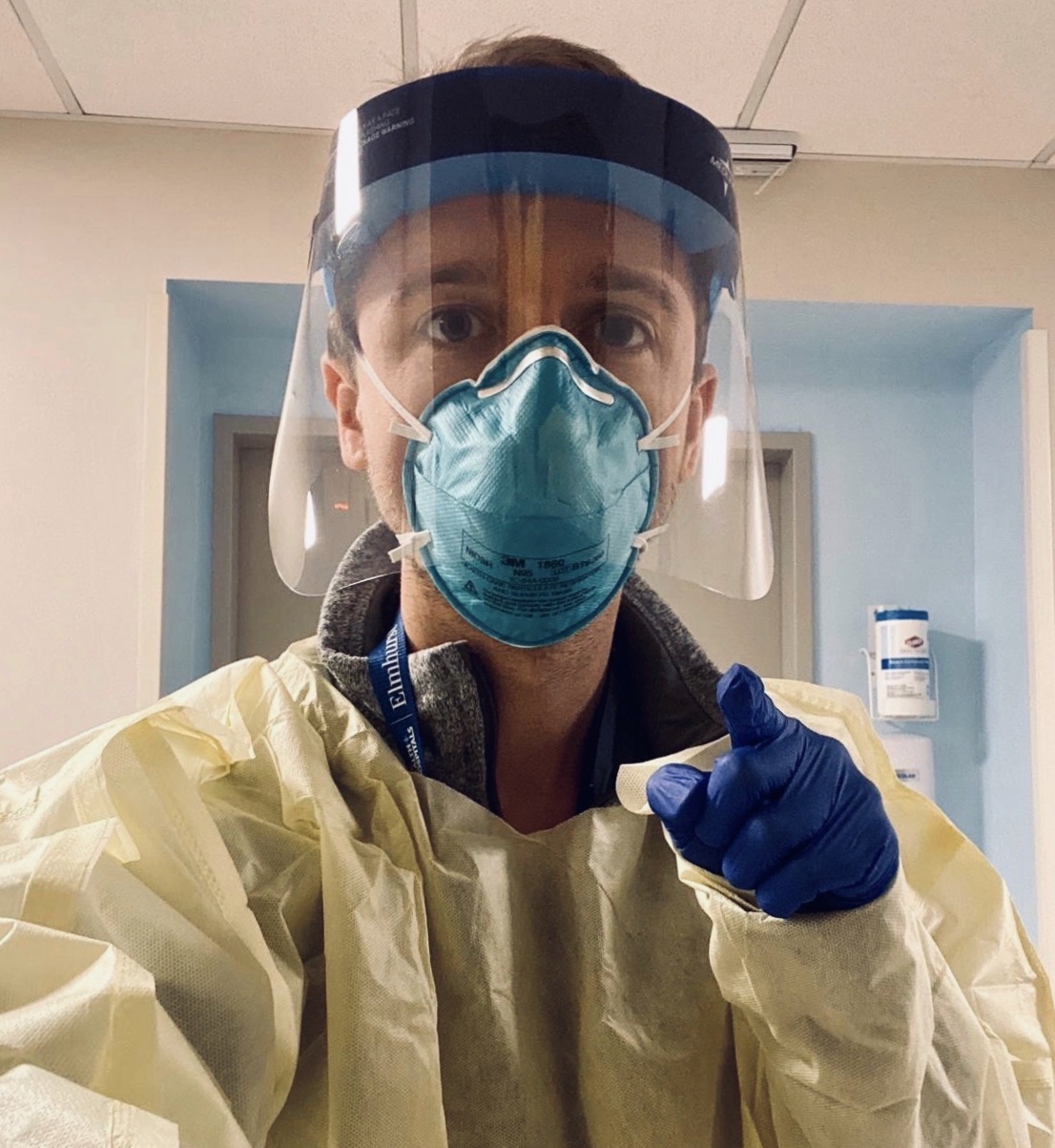Every night at 7:00 pm, New York City erupts into a glorious earthquake of applause; young and old gather at their windows to clap, shout and bang on their pots and pans. It is a small action of appreciation for the thousands of healthcare workers and first responders on the front lines combating the coronavirus.
“It really brings tears to your eyes, and you almost feel like you don’t deserve it,” Dr. Frans Joseph Beerkens — my cousin — says. “It’s unbelievable how much people are standing behind us and it gives you motivation to walk into your shift. I was on night shift, I would hear that on my way to work, and I would walk in ready to fight.”
Beerkens, 29, is a first year resident at Mount Sinai Hospital in East Harlem. He grew up in Amsterdam after moving there from Washington, D.C. at the age of 5. He returned to D.C. as an undergrad and later medical student at Georgetown University.
Not so long after settling into his new job at Mount Sinai, the coronavirus outbreak struck and the city was devastated, leaving streets and restaurants vacant and apocalypse-like. Today, thousands of New York City residents have died of the virus and models show that the death toll could topple 16,000 by the end of the outbreak.
In only several weeks, New York City has seen a dramatic spike in COVID-19 reports, and communities of particularly low incomes — such as the South Bronx and Western Queens — have seen the most concentrated escalation of reports. Harlem, where Beerkens works, has seen a 220 percent increase in flu related hospital visits as of last week.
“The sheer volume of patients coming in with this is terrifying,” Beerkens says.
Mount Sinai has implemented a number of measures to accommodate a surplus of patients and subdue the fear that Beerkens speaks of. Their huge main hall, usually spacious and unused for medical purposes, is now full of extra patient rooms. In partnership with Samaritan’s Purse, a makeshift extension of the hospital was constructed on Central Park’s East Meadow near Mount Sinai’s headquarters; the site consists of 68 beds and 14 tents.
The hospital is also enrolled in a program that sterilizes used masks and face shields. The staff wear their gear and PPE — personal protective equipment — throughout their entire shift. After, it is all shipped to a company that sterilizes them and redistributes the equipment to Mount Sinai or other hospitals.
“The hospital system in my opinion this week is really doing a tremendous job in trying to get ahead because that is what you have to do with these pandemics,” Beerkens says. “You can’t just react. You have to get ahead.”
The outer community has also shown immense support of health care workers and responded to the necessity for more equipment. Hundreds of health professionals have flown in from all across the country. The United Nations donated nearly 250,000 surgical masks to New York City hospitals, and Tesla has donated hundreds of ventilators. Individual donors and restaurants such as Shake Shack have also contributed, donating enormous shipments of food to the Mount Sinai staff.
“It is really inspiring and impressive how much the country is coming together to help out,” Beerkens says. “It’s the basic human instinct to care for others, and that’s what’s coming out right now.”
Beerkens is one of the many doctors that has to discuss the possibility of recovery with patients, usually older people with pre-existing diseases that will make it more difficult for them to return to normal health.
“We are having really serious conversations about what their goals are and if they want to go through all that pain and suffering both for them and their families,” Beerkens says. “It’s sad because a lot of people are realizing that they may pass a lot sooner than they anticipated.”
Hospitals across the country have put in place policies that prohibit family members from visiting until the patient is in a severe condition and it is clear that they will not recover. Beerkens, in response, has made sure to call the families of his patients every night.
Beerkens, however, is seeing many of his patients improve. “One of my patients was not doing well and took part in a clinical trial that the hospital had. And he got better! That was a tremendous feeling of relief and happiness I’ll remember forever.”
“Seeing yourself as a possible target while dealing with a lot of COVID positive patients is of course scary,” Beerkens says. “But the opportunity to help out, be on the front lines and make a difference outweighs the fear by a thousand.”
“The city, the state, the country and even the world are putting public health in front of the economy. We essentially stopped our economy with the risk of another recession all to protect the health of our citizens, all to help our hospitals be able to deal with this and all to prevent the millions of deaths that were initially predicted. That’s something that empowers my faith in humanity.”






